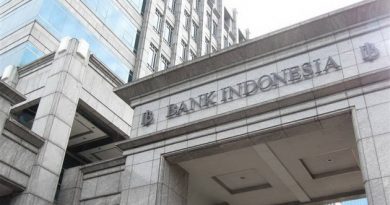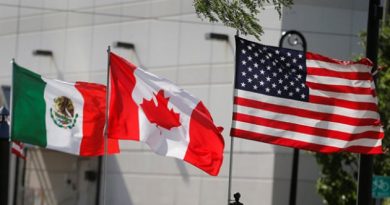Brexit Could Hurt Euro Zone Economies: ECB’s Nowotny

Britain’s ramshackle exit from the European Union, with two ministers quitting the government on Monday, could damage economic growth in the euro zone, European Central Bank policymaker Ewald Nowotny said.
British Foreign Secretary Boris Johnson and Brexit minister David Davis departed over Prime Minister Theresa May’s plans to leave the European Union, leaving the British leader’s Brexit plans in ruins.
The ECB Bank is following the fallout from Britain’s efforts to negotiate its departure, Nowotny said, highlighting it as one of the three main threats to economic growth in the 19 countries which use the single European currency.
“For the euro zone, the Brexit constellation is something we look at,” Nowotny told an event in Zurich just before news of Johnson’s exit. “It is mainly a risk for the U.K. but it also poses risks and uncertainties for the euro zone.”
Other potential problems included looming trade wars along with constraints on economic capacity which could lead to slower growth, he said.
The ECB expects euro zone economic growth of 2.1 percent this year, easing to 1.9 percent in 2019 and a 1.7 percent rate in 2020.
“These lower growth rates do not mean an end to the good times,” Nowotny said. “It means we have reached a plateau and can grow with capacity growth.”
In this uncertain environment, the ECB would adopt a “wait and see” approach to any tightening of monetary policy after it keeps negative rates on hold through the summer of 2019, he added.
The ECB said last month it intended to end its 2.6 trillion euro bond purchase program by the close of the year but said rates would stay unchanged at least until next summer, a wording that pushed back rate hike expectations.
Nowotny noted that ECB head Mario Draghi had said at the time the central bank would not prejudge the timing of any rate hike. “He said wait and see and I think this is the answer we have to give for this,” Nowotny said.
On interest rate changes, he referred to the current ECB wording of no change “at least through the summer of 2019”.
“This is forward guidance and shows there will be no changes before this,” Nowotny, who is also head of the Austrian central bank, said.
It would also be “not too much of a risk” to anticipate the ECB would formally decide when it meets later this month to end its bond buying program this year, he said.
His comments sent the euro to its highest level of the day, gaining 0.3 percent against the dollar to trade at $1.1785. The single currency also gained against the Swiss franc, rising 0.2 percent to trade at 1.1646 francs to the euro.
Nowotny said the ECB would move cautiously when exiting its expansive stance, and look to medium-term inflation trends when making policy after inflation rose past the ECB’s target of just under two percent in June.
courtesy : .reuters.com
photo : City AM
[social_warfare buttons = “Facebook, Pinterest, LinkedIn, Twitter, Total”]



